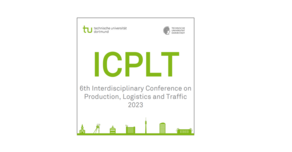SimTwin - Simulation-based planning support for less-than-truckload terminals
- Current Projects
- Simulation and Logistics Engineering
Background
Although the less-than-truckload (LTL) market is growing continuously, the industry is dealing with major challenges. Because of the increasing service requirements of customers, which include, for example, real-time shipment tracking and cross-interface data transfer, spending continue to rise due to steadily increasing operating costs.
However, given the current competitive situation, it isn’t expedient to pass on these costs to the customer, which is why the optimization of the existing logistics processes and structures within the LTL terminals must be considered as a solution approach. Regarding this, the focus is on more efficient use of existing resources and the development of new capacities. This includes in particular the basic layout planning as well as the design of further relevant logistical areas within the plant.
In addition to the known methods of factory planning, a simulation approach can be used as a tool for the project. This approach allows to consider additional dynamics within the planning process, but at the same time requires detailed expert knowledge in the field of modeling, which is often not available in SME‘s (small and medium enterprises) due to cost reasons.
Within this research project, a data-driven approach for the planning support of LTL terminals by simulation will be developed, which can be applied without explicit modeling knowledge.
Procedure
To achieve this goal, the first step is to develop the technical requirements catalog for planning the LTL terminal. In addition to the definition of the required input data, this includes the description of all planning steps to be carried out based on specific use cases. This is followed by the definition of relevant key performance indicators. These represent the essential output variables of the simulation model and are used to provide feedback on the quality of the planning. Based on the previously defined key performance indicators, the development of the simulation tool is started. The process essentially comprises the design and implementation of the simulation environment and delivers an executable model as a result. In the final phase, this developed tool must be checked and validated with regard to its applicability. For this purpose, simulation scenarios are performed and the suitability of the developed tool is checked on the basis of the previously defined key performance indicators and in discussions with experts.
Targeted results
The research project aims to develop a data-driven planning tool that guides the user step-by-step through the planning process of a LTL terminal and independently designs a simulation model based on the users input. This should enable SMEs to compare and evaluate different planning scenarios in order to minimize planning costs and time without having in-depth simulation knowledge.
Funding and partners





